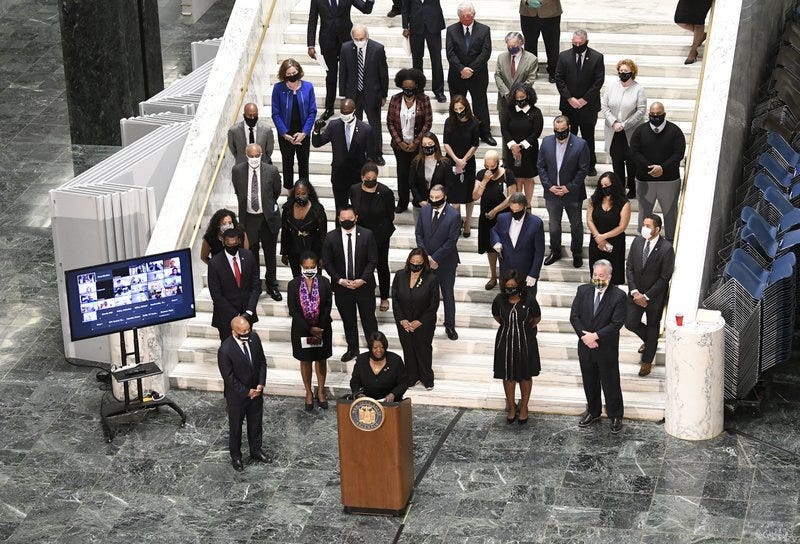
Buffalo, NY (WBEN) - A decades-old law that kept law enforcement officers’ disciplinary records secret in New York appeared to be headed for an overhaul this week as state lawmakers moved to act on a number of police accountability measures prompted by street demonstrations over the death of George Floyd.
The state law, known by its section title, 50-a, was passed in the 1970s to prevent criminal defense attorneys from subjecting officers to cross-examinations about irrelevant information in their personnel file. The law applies to jail guards and firefighters, as well.
But over the years, the law also draped a veil over most records of alleged police misconduct. Formal complaints about excessive force by officers are not public in New York. In recent years, police departments have cited the law in refusing to say even whether officers have been punished.
The Democrat-led Legislature planned to pass a repeal this week and Gov. Andrew Cuomo said Monday he intends to sign it, noting that such records are already available for other government employees, such as teachers and toll takers.
“Their records will be available,” Cuomo said. “It is just parity and equality with every other public employee.”
But there is some concern about the legislation among some Republican lawmakers from the Western New York region.
State Senator Patrick Gallivan, himself a former sheriff, says he has concerns about how this could affect other aspects of justice. "It will allow for wrongful accusations against officers to be used against them," says Gallivan. "Whether it's destroying a reputation or used in a court of law to impugn their reputation." He says the larger issue is how this would affect criminal cases. "This could affect any case in court when you have a focus on wrongful accusations that could creep into the minds of a jury," explains Gallivan, who's also concerned the repeal would ezpose the officer's family name, address, etc.
Morinello agrees with Gallivan with any conviction or finding of misconduct, but wonders what will be done with unsubstantiated allegations. "If you have an unfounded allegation that resulted in no action, just the allegation itself could subject this officer to scrutiny, discipline, or even discrediting his testimony in a trial," says Morniello.
The legislation would provide officers with some privacy protections, including redaction of home addresses, personal phone numbers and email addresses.
The legislation was among a package of police accountability bills that began to move through the legislature Monday, and some of which were passed. The state Senate and Assembly passed legislation that bans police chokeholds, guarantees the right to record police activity and collects more data on deaths in custody.
Another bill that makes it easier to file civil lawsuits against people who call 911 and falsely accuse someone of criminal activity based only on their race or background also passed.
A vote on opening police disciplinary records could come as soon as Tuesday.
